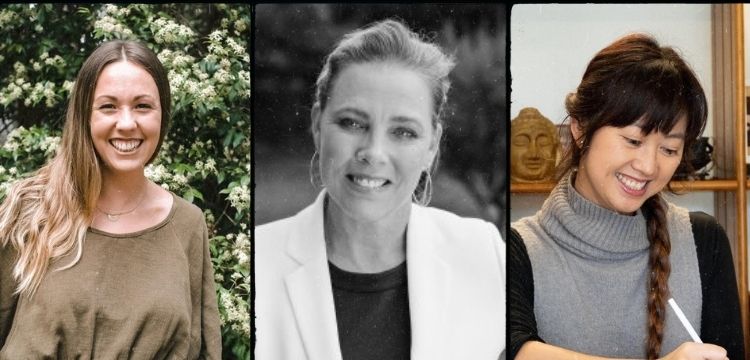Over the past few months, inflation and the rising cost of living has been a consistent concern as prices for food, petrol, rent and more soar. Reports of food inflation have made headlines as a UBS report reveals that prices have re-accelerated over the last quarter with Woolworths experiencing an average of upwards of 4 per cent on food costs.
Various leaders from organisations that represent and provide different social services like assistance for marginalised youth, domestic violence survivors fighting for financial independence, and empowering Aboriginal and Torres Strait Islander women, all share their thoughts on how the rising cost of living will affect these different groups.
Nici Andronicus, CEO at 10×10, an organisation that exists to empower volunteers who seek a life of purpose, said:
“We support grassroots charities who work with marginalised communities and cause areas that include hunger, disability, domestic violence, First Nations communities and refugees. We have a critical awareness that those most impacted by rapid inflation are people who already struggle financially.

Nici Andronicus
“There are so many people struggling to get by day-to-day who don’t have a buffer for the rising cost of living in their budget. We believe that there are remarkable social entrepreneurs with the vision to lift up and support marginalised people to not only change lives but also potentially help break the cycles of suffering and poverty. We believe that there are remarkable social entrepreneurs who are creating effective solutions. We invest in innovative grassroots organisations led by young people that tackle systemic issues in new ways.
“One-off payments to stem the bleeding aren’t sustainable and won’t make a real impact on people’s lives. We need to find solutions that will empower people with the skills and resources they need to end the cycle of marginalisation and poverty.”
Amy Nguyen, a co-founder at Zen Tea Lounge Foundation, an organisation that aims to empower women to change their situations and rebuild their lives, said:
“There’s no doubt the rising cost of living is impacting some of our most vulnerable communities. At Zen, the domestic violence survivors we support, many of which are from CALD backgrounds, have seen their bills increase 20-35%. What this means is that securing long term accommodation and rentals has become even harder, with some of our women and their children becoming homeless because they are surviving on only one or sometimes no income at all. As a result, we’ve seen demand increase for donations of essential goods as well as our free food hampers. However, our food suppliers are ceasing their donations due to limited funding. Inflation is putting a strain on all social sector supply chains and it’s clear we won’t be able to provide the same level of support for much longer. The last thing we want is to see even more women stuck in abusive relationships because they aren’t financially able to leave.

Amy Nguyen
“Even in our own cafe, which we run to fund our programs to support survivors, we are struggling to provide work for our women because of a drop off in customers. We’re seeing more people cutting their daily expenses and bringing lunch to work, and this is on top of a decrease in customers during Covid and the shift to working from home.
“Marginalised communities have suffered greatly over the past two years. The pandemic and subsequent lockdowns took a huge financial and emotional toll on survivors of domestic violence, particularly those from migrant and CALD communities that already experience higher levels of isolation and financial uncertainty. If something is not done to correct the skyrocketing cost of living we are going to see a lot more poverty, and with poverty comes a myriad of additional social issues that put further strain on the government and communities more broadly.
“Things like specific culturally appropriate mental health support, financial advisors, free child care services and employment support can break down the gap in our system, help build resiliency and provide better tools to help empower our marginalised communities during this challenging time.”
Emma Sullings, Founder of The Happy Boxes Project, an organisation that provides a collection of toiletries and beauty products made accessible for Indigenous women, also said:
“Current inflationary pressures will only exacerbate existing issues of limited product availability and price gouging, which are already rife in remote Indigenous communities.

Emma Sullings
“In some remote parts of Australia, where the closest supermarket may be hundreds of kilometres away, access to basic everyday goods is extremely challenging. The goods may arrive by small planes or barges, sometimes encountering massive delays due to flooded roads. Once the products do arrive, they are subject to extreme price hikes — some of our coordinators report $27 for a pack of basic underwear and $30 for a tin of baby formula.
“If ever there are cost of living pressures for people living in city or metropolitan areas, you can guarantee the problem is much worse for those where accessibility remains a challenge no matter the macroeconomic circumstances. That’s why at Happy Boxes, it’s our mission to support the empowerment of Indigenous women through alleviating the barriers of accessing basic needs.”
Lourdes Antenor is an experienced writer who specialises in the not-for-profit sector and its affiliations. She is the content producer for Third Sector News, an online knowledge-based platform for and about the Australian NFP sector.





































































































































































